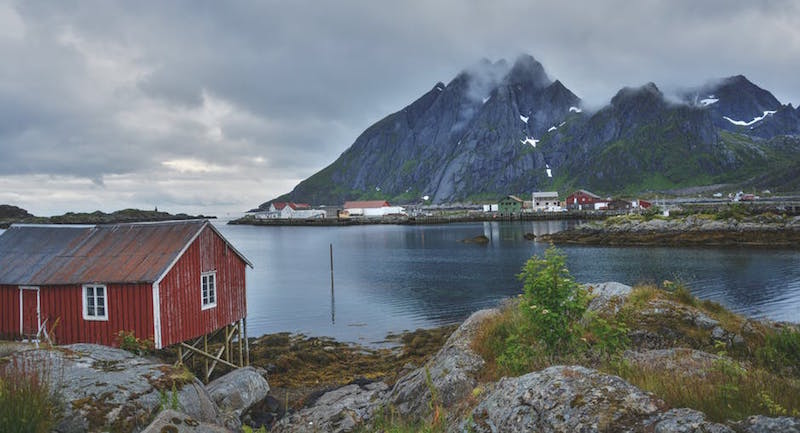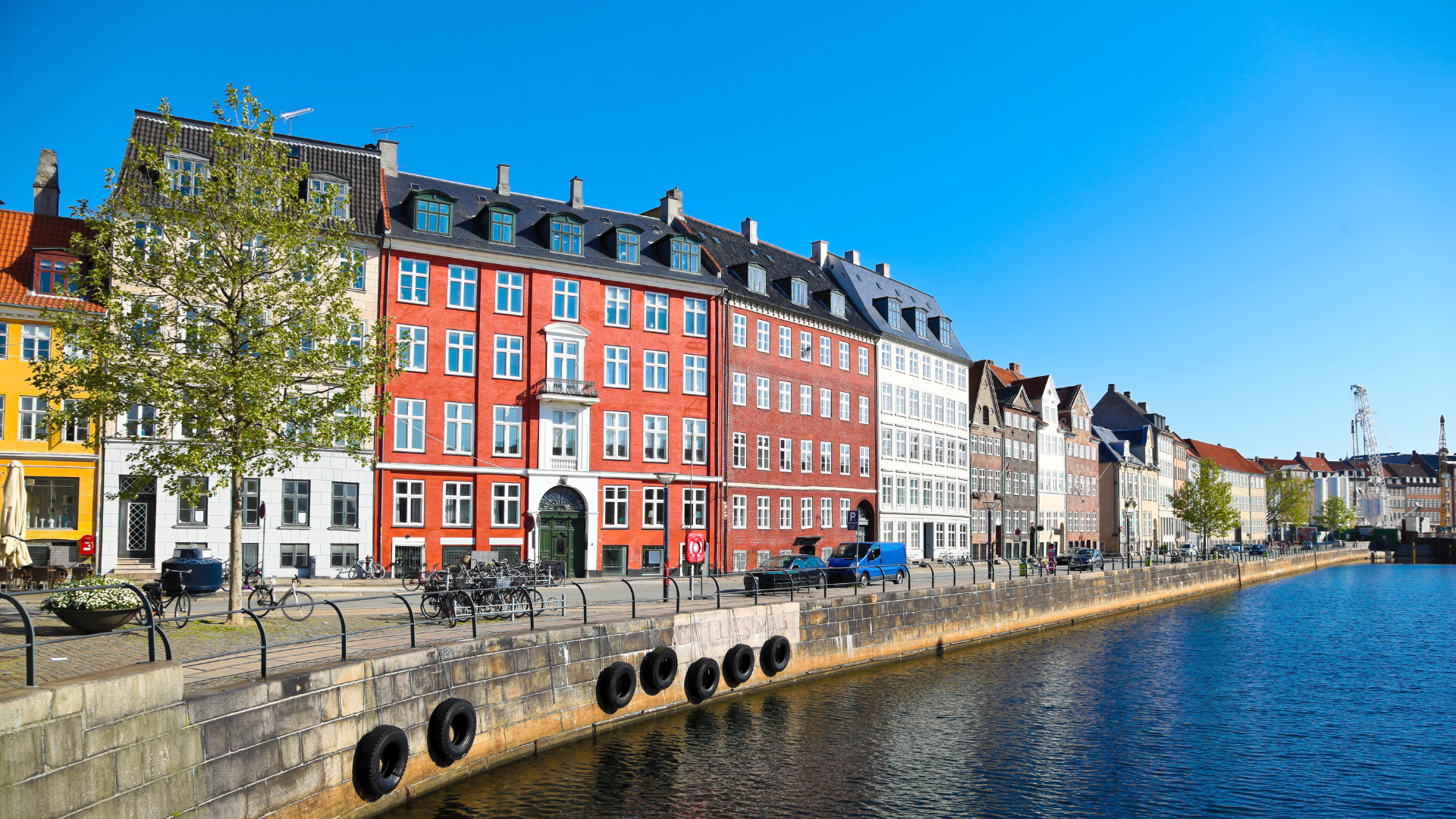
Study in Denmark
Last edited on 28 Feb 2026
How will studying in Denmark benefit you? As an international student in Denmark you can expect world-class education in areas such as engineering, life sciences, social sciences and IT. You will be conditioned in a safe, friendly and innovation-driven environment.
Higher education system in Denmark is focused on bringing solutions for the real-world. Therefore, traditional lectures are combined with industrial collaborations and teaching methods, which promote students' skill set to use what they have learned in the class room and to turn new knowledge into innovative and creative solutions. You will be met by an up-to-date learning environment where you can learn from industry experts and undertake internships in internationally recognized organizations.
To loosen up a little bit, Denmark's location makes it a gateway to other Scandinavian countries and the rest of Europe. Berlin is just an hour’s flight away. London and Paris can be reached in less than two hours. Barcelona, Rome, Vienna and Prague are all just a few hours flight away!
Universities in Denmark
Student Cities in Denmark
Copenhagen
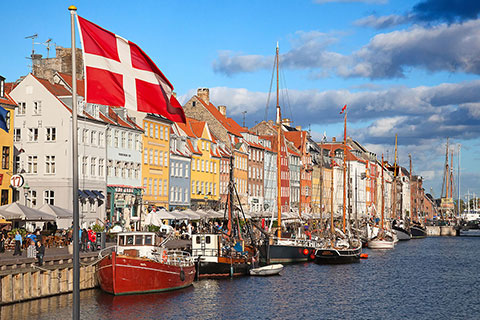
Denmark’s capital city, Copenhagen, is one of the most celebrated cities in Europe, and is currently ranked joint 27th in the QS Best Student Cities index. The heady combination of romantic spires and edgy new architecture, the vibrant and colorful cultural scene, innumerable cafés and bars, and the consistently high quality of life enjoyed by its residents all add to its appeal. It’s not the cheapest place in the world to study, but it’s unlikely to set you back more than other capitals such as London or Paris.
As well as the University of Copenhagen, Denmark’s oldest and highest-ranked university, Copenhagen is also home to the Technical University of Denmark, ranked 109th in the world, as well as Copenhagen Business School and the IT University of Copenhagen.
Aarhus
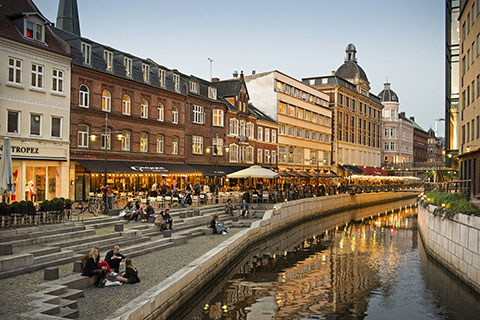
An important port town located on the country’s main peninsula, Aarhus is Denmark’s second-largest city and is home to the third highest-ranked Danish university, Aarhus University (117th in the QS World University Rankings 2016/17). Like Copenhagen, it has a rich history and a stunning historical quarter, featuring not one but two 13th century cathedrals, as well as a rich cultural scene and plenty of nightlife, courtesy of its large student population. Aarhus has also been rated as one of the happiest cities in the world by National Geographic.
Odense
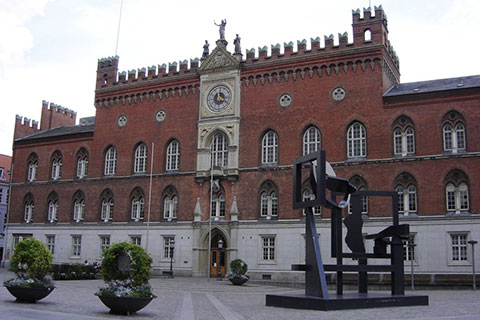
Located on the island of Funen, which sits between main peninsula Jutland and largest island Zealand, Odense is Denmark’s third most populous city. It is noteworthy for being the birthplace of famous Danish author Hans Christian Andersen, known for his innovative fairy tales, and is also rich in Viking-era history. You can see the skeleton of Saint Canute, the country’s patron saint, on display in the city’s historic cathedral. University-wise, Odense is the location of the main campus of the University of Southern Denmark, ranked joint 390th in the QS World University Rankings 2016/17, and this relatively small city is infused with the vibrant life of its the large student population.
Aalborg
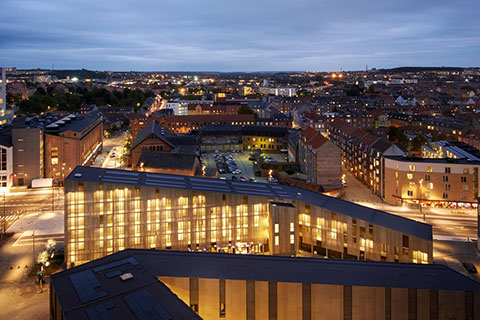
An industrial city towards the north of Jutland, Aalborg is home to Aalborg University, which is ranked joint 374th in the QS World University Rankings 2016/17. Combining historical architecture with a more industrial and contemporary feel, one of Aalborg’s major attractions is Jomfru Ane Gade – a long street which is the center of the city’s thriving café culture and nightlife. The waterfront area has recently been redeveloped, and the city also has a new major concert venue – Musikkens Hus. Aalborg is also home to the largest carnival in Northern Europe, held annually in May
Application, Fees and Visas in Denmark
Application, fees, and visa
Regarding visa please visit the following web pages:
https://www.nyidanmark.dk/en-GB/You-want-to-apply/Study/Higher-education
Fees and funding Fees and funding
If you a citizen of any other country within the EU/EEA (or Switzerland), you will be treated almost exactly the same as local students. This means that universities in Denmark are free to attend, at all levels, for all EU/EEA students. If you are from outside the EU/EEA, you will be required to pay fees, which on average cost €6,000-16,000 per year (~US$6,560-17,590). Some scholarships are available, offered by individual Danish universities and also via public initiatives.
Accommodation
Danish universities do not have a tradition for on-campus housing. Most students live in student halls of residences situated some distance from campus. An efficient public transport system also makes it easy to travel between your residence, campus and the city centre.
Types of accommodation
Some international students prefer to rent a room or a sub-let from a Danish student or landlord. Student halls of residence is also an option. Others rent an apartment or a house, which they share with friends. Whether you choose to live in a student residence, apartment or house you will have to cater for yourself. Cleaning and doing your laundry are also your own responsibility.
Student halls of residence (‘kollegier’)
Student residences offer accommodation in a communal environment. This kind of living may be particularly suitable for international students who have just arrived and do not know anyone yet. Besides, the rent for a room is generally cheaper than that of a private room.
Indonesian Student association in Denmark (PPI Denmark)
Perhimpunan Pelajar Indonesia Denmark (PPI Denmark) is an Indonesian student organization for Indonesia youth who are studying in Denmark. Members of PPI Denmark consist of undergraduate, graduate and postgraduate students. PPI Denmark is created to foster a sense of unity among Indonesian students. Developing the potential and creativity of members. Organizing and fostering organizational relationships both internally and externally. Conduct capacity-building activities of individual, groups between Indonesian students in Denmark. Provide information about Denmark, especially education, to Indonesians and vice versa. Now PPI Denmark has 84 active members which spread throughout Denmark.
Learn more about PPI Denmark in
Website : www.ppidenmark.dk
Facebook : PPI Denmark
Twitter : @ppidanmark
Internship opportunities
At most universities in Denmark it is possible, during either the bachelor or the master degree, to take a semester aboard. A semester abroad could be either spend as an internship or exchange to another university in the world. The requirements for getting full ECTS points when taking a semester aboard varies from university to university, but the study administration is always to be asked for advice about the opportunities the specific university provides.
The Embassy of The Republic Indonesia in Denmark
The Embassy of the Republic of Indonesia (often abbreviated as "KBRI") is the main representative office of Indonesia in a foreign country with diplomatic relations with Indonesia and headed by an ambassador.
Contact Information
Kedutaan Besar Republik Indonesia - Kopenhagen
Ørehøj Alle 1, 2900 Hellerup, Denmark
Telephone: +45 39 62 44 22
E-mail: unitkomkph@kbricph.dk
Fast fact
- Constitutional monarchy; current head of state is Queen Margrethe II
- Democracy with unicameral legislature (the Folketing)
- Head of government is Prime Minister, currently Lars Løkke Rasmussen
- As well as Denmark proper, which consists of the main peninsula Jutland and 406 islands (the biggest of which is Zealand), the Kingdom of Denmark also includes the Faroe Islands and Greenland.
- Capital city: Copenhagen.
- Member of the European Union, and joins Sweden and Norway as part of Scandinavia (which along with Iceland and Finland constitute the Nordic countries).
- The Danish flag (the Dannebrog – red with a white cross) is the oldest flag currently in use.
- Denmark is the world’s fifth largest exporter of food (Danish bacon probably has a lot to do with this).
- Official language: Danish or Dansk, but German, Greenlandic and Faroese are also recognized and a large proportion of Danes speak English as a second language
- Currency: Danish Krone (DKK)
- International dialing code: +45
- Central European Time (UTC+1), switching to Central European Summer Time in summer (UCT+2)
Higher education in Denmark is free for students from the EU/EEA and Switzerland and for students participating in an exchange programme. For other students annual tuition range from 6,000 to 16,000 Euro. A number of scholarships and grants are available from the institutions and from public funded schemes.
Most Danish institutions have bilateral agreements with foreign institutions of higher education. These agreements are usually designed for mutual exchange of students, researchers and teachers.
Danish higher education institutions (universities only) receive a limited number of government scholarships each year to fund highly qualified full-degree students from non-EU/EEA countries and Switzerland.
Danish government scholarships for highly qualified non-EU/EEA students
Focus Scholarship: Bachelor, Master and Doctoral
Competition: Worldwide
Scholarship Coverage: Full and partial scholarship
Danish higher education institutions receive government scholarships each year to fund excellence full-degree students from non-EU/EEA countries and Switzerland. The scholarships are fully taking care by the Danish institutions of higher education, which conducted the selection process and decides which students will receive a scholarship. The government scholarship consists of two parts and can be given as full or partial tuition fee waivers and/or grants towards covering your living costs. For further information about the government scholarship, please consult the admission details of your targeted higher education institution.
Criteria
- A citizen of a country outside the EU, the European Economic Area or Switzerland
- Enrolled in a full degree higher education program
- Granted a time-limited residence permit in Denmark due to education
Doctorate Scholarship (PhD position) in Danish Institutions of Higher Education
Taking a PhD degree means you must spend at least four years doing research and writing a dissertation. During these four years, PhD candidates work closely with their supervisors. PhD is not regarded as a study, but serious research and PhD candidates are often in working condition with salary. The following list is the vacant researcher positions at the top listed Danish universities. For more information please access the official website of the university:
- Danmarks Tekniske Universitet (Doctorate)
- University of Copenhagen (Doctorate)
- Aalborg University (Doctorate)
- University of Southern Denmark (Doctorate)
- Aarhus University (Master and Doctorate)
- Copenhagen Business School (Master)
You could also find scholarship opportunities for a Master’s Degree at Copenhagen Business School. More information here.





